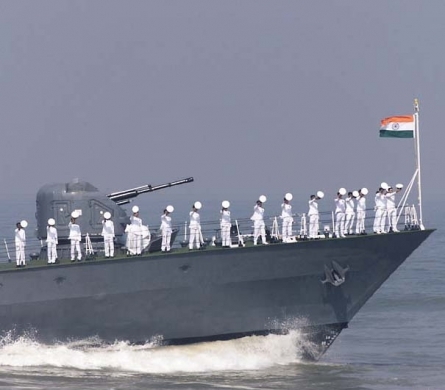China has suffered a big blow from Thailand, which has announced that it would scrap the KRA Canal project that Beijing desperately wanted to build to shorten its access to the Indian Ocean Region (IOR). The project, if implemented, would give PLA Navy direct access to Bay of Bengal bypassing the Strait of Malacca.
China was hoping to build the KRA canal across Thailand's Isthmus to shorten its access to the Indian Ocean by 1100 km bypassing Malacca Straits. China has been apprehensive that its commercial and navy ships can be blocked by the USA or countries like India in Malacca Straits. The KRA canal would have been part of China’s "string of pearls" policy, including control over ports and potential naval bases in Cambodia and Sri Lanka causing India to worry about being encircled by the navy.
The canal could have been a crucial strategic asset for China, allowing its navy to quickly move ships between its newly constructed bases in the South China Sea and the IOR without diverting over 1100 km south to round the tip of Malaysia. India had expressed reservations over the proposed canal project as it could be a threat to its security interest in the IOR and matter was raised with the Thai government.
In fact, the project was in line with Beijing’s long-term ambitions to bypass the Strait of Malacca to enter into Indian Ocean Region. With this project, China could have put an end to the Malacca dilemma by bypassing the Strait of Malacca, a narrow chokepoint between the Malay Peninsula and the Indonesian island of Sumatra that divides the Indian and Pacific Oceans.
Amid the border standoff between India and China, the Indian Navy has heightened its presence along the Malacca Straits, from where a bulk of China’s energy supplies pass through and where India has enjoyed strategic advantage over China for many years. This narrow waterway is a perfect choke point. India’s natural position in the Indian Ocean, with basing capabilities in the Andaman and Nicobar Islands at the mouth of the strait, would allow its navy to cut it off in the event of a crisis or war.
<img class="wp-image-12345 size-large" src="https://indianarrative.com/wp-content/uploads/2020/09/2a412fc850f9cb3a09ba48c2899edcff-1024×452.jpg" alt="" width="1024" height="452" /> A Chinese merchant vessel (Xinhua/Jia Lirui/IANS)With tensions running high between the two countries, this threat is well understood by naval analysts. The renowned naval author and creator of the Harpoon war game series, Larry Bond, said recently that China has a real concern that India could close the Strait. "If India wanted to cut off trade with China, all that they have to do is park a bunch of ships at the Straits of Malacca. And that’s it, nothing else is getting through that way."
Historically, the vast majority of China’s oil imports, from the Persian Gulf, Venezuela and Angola, go by this route. To bypass the Strait of Malacca, China was pushing Thailand hard to build the KRA Canal Project that could render ineffective any Indian attempt to block the straits. However, India can still be in a position to throttle Chinese supply lines there.
Thailand government took the step after facing intense pressure from opposition parties and the public who had raised concerns that the proposed 120 km mega canal would undermine the independence of poor South-east Asian countries like Myanmar and Cambodia as these nations are highly vulnerable to Chinese interference.
Not only this, the Thai government has also given in to the public pressure and delayed the purchase of three Chinese submarines worth $724 million. According to a deal done in 2015, Thailand was one of the first countries to buy Chinese naval hardware and in 2017, finalized its purchase of three submarines and with the first one expected to be delivered in 2023. On August 31, Thailand announced to delay the purchase of two additional submarines from China following huge public outrage over the controversial deal. Undoubtedly, both decisions of the Thai government would be welcomed in New Delhi..




















